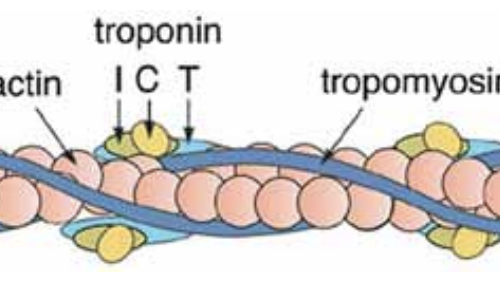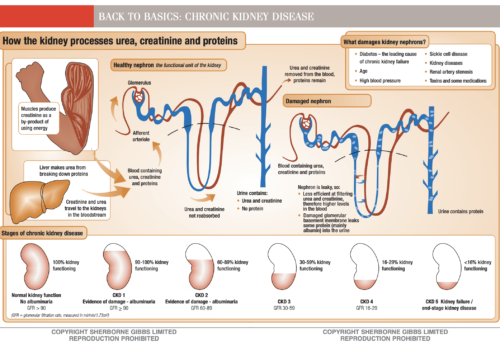The use of language is obviously very important in effective communication, and gives important clues as to how people make sense of the world around them, and how they understand their experiences, as we saw in an introduction to neurolinguistic programming (NLP) in the last issue of BJPCN. In this article, we will look at how to use effective body language and non-verbal communication to its fullest extent in the clinic setting.
Starting on your GTN tablets or spray
GTN (glyceryl trinitrate) in tablet or spray form is used for the immediate relief of chest pain due to angina. The tablets have a short shelf-life and should be thrown away eight weeks after opening the bottle. The spray lasts longer, but you need to check the expiry date on the bottle. Angina is a […]
Putting prevention first: the new vascular risk assessment programme
Everyone between 40 and 74 years of age is to be offered checks for vascular disease as part of the new Putting Prevention First programme. The aim is to identify vulnerability to vascular diseases, with the goal of preventing up to 9,500 heart attacks and strokes and saving 2,000 lives every year. Who will this programme target, and what will we need to do to put it into action?
Making Sense of HbA1c
There are several blood tests available to measure blood glucose levels. Some require the patient to fast while others do not. Understanding and interpreting the results accurately are essential in optimising the management of our patients with diabetes. This article looks specifically at the HbA1c test and its significance. We define what it is and when we should carry out this test, as well as helping you to understand what the results mean and the targets we are aiming for.
Neurolinguistic Programming: Getting to the Heart of Communication
Imagine what it would be like if you could communicate effectively with every person you meet. What would it be like to know that any messages you want to put across to your patients mean the same to them when they hear them as they mean to you? A few basic pointers in neurolinguistic programming (NLP) may help to improve how clearly you communicate with others. In this article we will look at linguistics, or the use of language, as one part of NLP and a key indicator of how people make sense of, and interpret, the world.
Using troponins to assess cardiac damage: Getting to the heart of the matter
Troponins are now measured routinely in patients with acute chest pain in most hospitals in the UK. Studies have confirmed that they represent a marker of risk for subsequent cardiac events in most patients. In this article we explore what troponins are, why they may increase in acute coronary syndromes, how they are measured and how likely they are to be used in the future.
Optimising Management of Supraventricular Arrhythmias
Caring for patients with arrhythmias has evolved over the past decade as a result of technological innovation in both diagnosis and treatment. This article highlights some of the most common arrhythmias and reviews the most appropriate strategies for their medical management. The National Service Framework (NSF) for Coronary Heart Disease (CHD) sets out three quality standards in the chapter on arrhythmias and sudden cardiac death and we look at how to successfully implement these.
Starting an a Beta-Blocker for your Heart Problem
Editorial
We hope this issue of BJPCN is like an Easter egg – bright and appealing on the outside, with useful articles building a solid structure that you can really get your teeth into and lots of extra chocolates inside to sustain you over the next few weeks.
Impaired Fasting Glycaemia and Impaired Glucose Tolerance: Reducing Progression
The journey from normal glycaemic control to type 2 diabetes is a gradual one and, importantly, gives us lots of opportunities to diagnose so-called ‘pre-diabetes’ and step in to reduce the chances of a patient developing full-blown diabetes, or at least delay its onset. In this article, we review the rationale for early intervention, help you make sense of impaired fasting glycaemia and impaired glucose tolerance and illustrate what to look out for with case studies of patients you are likely to see in your practice.
“You Will Need to Stop Driving.” Chronic Disease, Driving and the Law
Telling a patient that they will have to stop driving can be difficult, so it is essential to be sure of the facts on the law regulating driving and chronic disease. When asked what they know about chronic disease and stopping driving, many people may know that epilepsy is an issue, and may mention diabetes. But are driving restrictions for one year, or is it three years? Do they affect only patients with diabetes on insulin, and are some regulations only for heavy goods vehicle (HGV) drivers? In this article, we give you the information to answer these questions.























